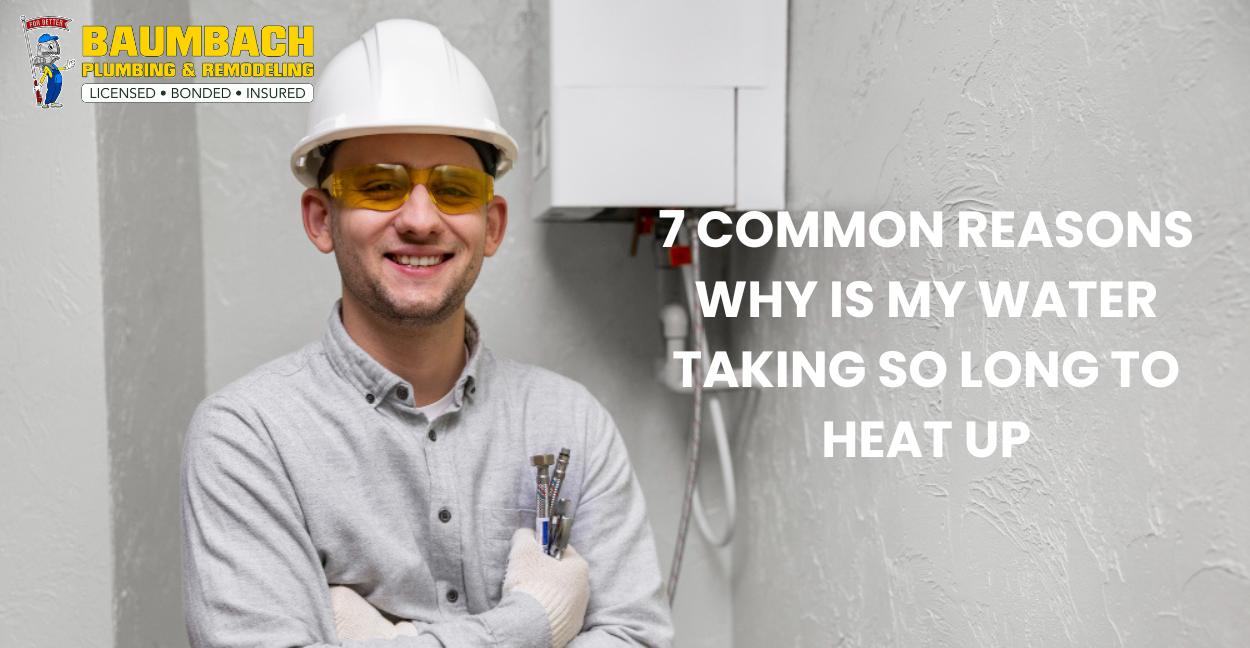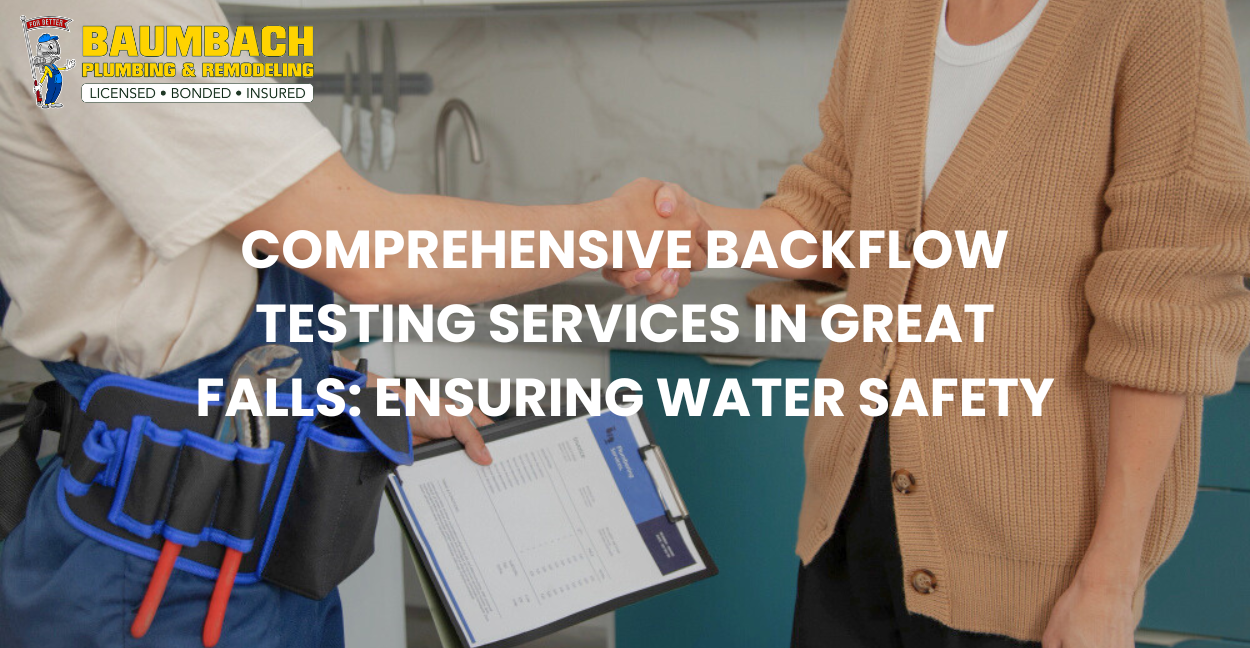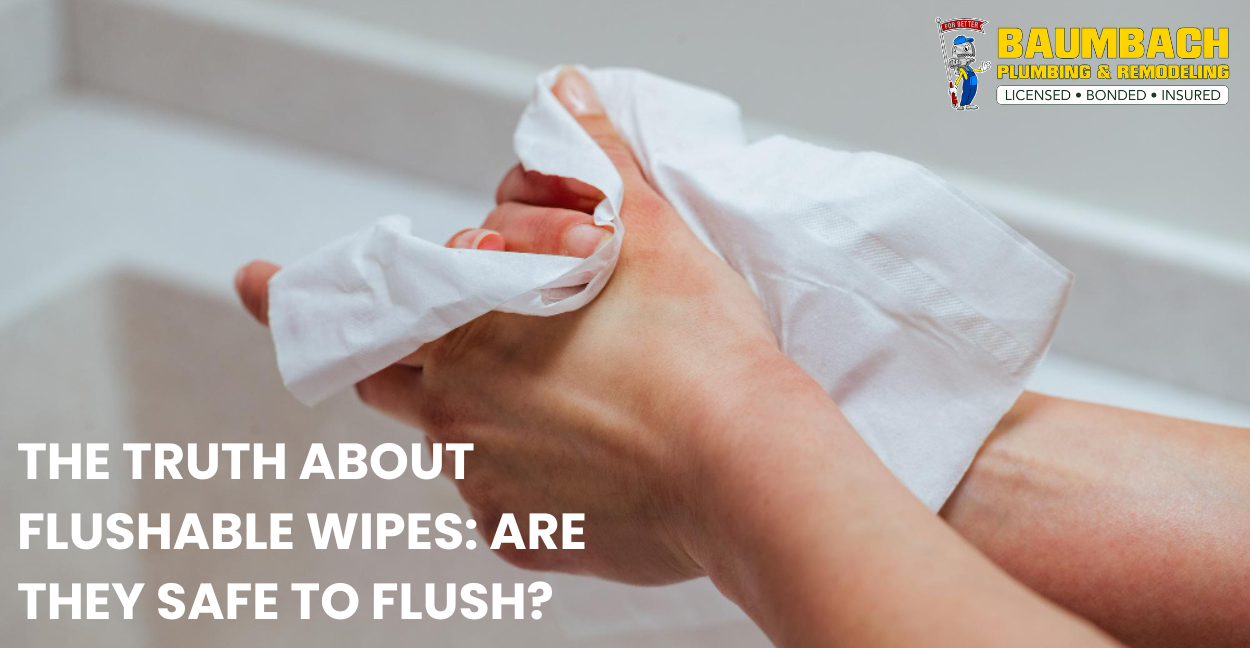Why is My Water Taking So Long to Heat Up?
Have you ever found yourself standing impatiently under the shower, waiting for the water to warm up? It can be frustrating, especially when you’re in a hurry. Slow water heating is a common issue that many homeowners face. Let’s delve into why your water might be taking so long to heat up and what you can do about it.
When it comes to home comfort, a reliable supply of hot water is essential. However, if your water heater is taking ages to heat up, it can disrupt your daily routine. Let’s explore the underlying reasons for this inconvenience and how you can address them.
Reasons for Slow Water Heating
1.) Sediment Buildup
Over time, minerals like calcium and magnesium precipitate out of water and settle at the bottom of your water heater’s tank. This accumulation forms a layer of sediment that acts as an insulator, separating the heating element from the water. As a result, the heating process becomes less efficient, requiring more time and energy to heat the water to the desired temperature. Regular flushing of the tank helps remove these sediments and improves heating efficiency.
2.) Thermostat Issues
Your water heater’s thermostat plays a crucial role in regulating water temperature. If the thermostat is malfunctioning or set incorrectly, it can lead to slow water heating. A thermostat set too low may not activate the heating element adequately, causing water to remain lukewarm. Conversely, a faulty thermostat that fails to accurately sense water temperature can result in inconsistent heating cycles, prolonging the time it takes to reach the desired temperature. Regularly checking and calibrating the thermostat can help resolve these issues.
3.) Insufficient Insulation
Proper insulation is vital for maintaining water temperature and reducing heat loss. Inadequate insulation around the water heater or hot water pipes allows heat to escape, especially in colder environments. This heat loss forces the water heater to work harder and longer to compensate for the lost heat, resulting in slower water heating times. By adding insulation jackets to the water heater and insulating hot water pipes, you can minimize heat loss and improve overall heating efficiency.
4.) High Demand
Peak usage periods, such as mornings or evenings when multiple appliances are drawing hot water simultaneously, can strain your water heater’s capacity. During these times, the water heater may struggle to keep up with the demand, leading to slower water heating. Installing a demand-response system or scheduling hot water usage during off-peak hours can alleviate this issue by distributing hot water more efficiently and reducing strain on the water heater.
5.) Tank Size
The size of your water heater tank plays a crucial role in determining how quickly it can heat water. Larger tanks can store more hot water, reducing the time it takes to heat up. If you have a small tank and high hot water demand, you may experience longer heating times as the heater struggles to keep up with the demand.
6.) Fuel Type
The type of fuel your water heater uses can significantly impact heating time. Gas water heaters tend to heat water faster than electric ones. Gas heaters have a higher heat output, allowing them to heat water more quickly. On the other hand, electric water heaters may take longer to heat water, especially if they have a lower wattage or if the electricity supply is limited.
7.) First Hour Rating (FHR)
The first-hour rating (FHR) of a water heater is a crucial factor in determining its heating capacity. It indicates how much hot water the heater can produce in the first hour of operation. Water heaters with a higher FHR can heat water more quickly, providing a continuous supply of hot water for your needs. If your water heater has a low FHR relative to your hot water demand, you may experience longer heating times and potential shortages of hot water during peak usage periods.
These factors, such as sediment buildup, thermostat issues, and heating element problems, collectively contribute to the overall efficiency and performance of your water heater. Understanding these factors can help you troubleshoot heating issues and optimize your water heating system for better efficiency and convenience.
Are you tired of waiting for your water to heat up? Let us help you solve this problem. Our expert team specializes in diagnosing and fixing water heating issues. Contact Baumbach Plumbing & Remodeling today for a personalized solution that ensures you have hot water whenever you need it.
Solutions to Speed Up Water Heating
Fortunately, there are several solutions available to speed up water heating and ensure you have hot water whenever you need it. Now, we’ll explore effective strategies to enhance your water heating system’s performance and improve your overall comfort.
Regular Maintenance
One of the most crucial steps in speeding up water heating is regular maintenance of your water heater. Over time, minerals and sediment can accumulate in the tank, reducing heating efficiency. Flushing the tank annually helps remove these deposits and allows the heating element to work more efficiently, resulting in faster water heating.
At Baumbach Plumbing & Remodeling, we provide professional and thorough maintenance services for water heaters. Contact us today to schedule your maintenance appointment and ensure the optimal performance of your water heating system. Additionally, we offer water heater repair and replacement services to address any issues and keep your hot water flowing seamlessly.
Thermostat Optimization
Calibrating your water heater’s thermostat is another effective solution. Ensure that the thermostat is set to the appropriate temperature for your household’s needs. A higher temperature setting can lead to faster water heating, but be cautious not to set it too high, as it can lead to energy wastage. If you want to learn about how to adjust the temperature on an Electric water heater. We have written a detailed blog post covering everything about it.
Insulation Upgrades
Improving insulation around your water heater and hot water pipes can significantly reduce heat loss and improve heating speed. Insulation jackets for the water heater and pipe sleeves for hot water pipes help retain heat, allowing the water heater to reach the desired temperature more quickly and maintain it for longer periods.
Demand-Response Systems
Installing a demand-response system can optimize water heating based on usage patterns. These systems prioritize hot water delivery during peak times, such as mornings or evenings when demand is high. By adjusting water heating based on demand, these systems ensure consistent and rapid heating, even during periods of high usage.
High-Efficiency Water Heaters
Consider upgrading to a high-efficiency water heater if your current unit is old or inefficient. High-efficiency models are designed to heat water quickly and effectively, reducing wait times and energy consumption. They often feature advanced heating technologies that improve performance and reduce operating costs.
From regular maintenance to advanced technologies like demand-response systems and high-efficiency water heaters, there are various options available to speed up water heating and enhance your overall comfort.
FAQs
How often should I flush my water heater?
It is recommended to flush your water heater at least once a year to remove sediment and maintain optimal efficiency. However, if you notice signs of sediment buildup or reduced water heating performance, such as longer heating times or lukewarm water, consider flushing the heater more frequently. Flushing helps prevent sediment accumulation, which can lead to decreased heating efficiency and potential damage to the heating elements.
What temperature should I set my water heater to?
The recommended temperature setting for most water heaters is 120°F (49°C). This temperature strikes a balance between safety and energy efficiency. Setting the temperature too high can not only pose a scalding risk but also lead to energy wastage. Conversely, setting it too low may result in longer heating times and inadequate hot water supply, especially during peak usage periods.
Can I replace a heating element myself?
While it is possible for DIY enthusiasts to replace a heating element in a water heater, it is generally recommended to hire a professional plumber for this task. Heating element replacement requires knowledge of electrical connections, safety precautions, and proper installation techniques. A licensed plumber can ensure that the replacement is done correctly, minimizing the risk of electrical hazards and ensuring optimal performance of your water heater.
Why is my water heater making strange noises?
Strange noises emanating from your water heater, such as popping, banging, or rumbling sounds, can indicate various issues. One common cause is sediment buildup at the bottom of the tank, which can create pockets of trapped air and lead to noisy operation. Additionally, mineral deposits on heating elements or loose components within the heater can also cause unusual noises. It is advisable to have your water heater inspected by a professional plumber if you notice persistent or loud noises, as they could signify underlying problems that require attention.
What should I do if I have no hot water at all?
If you are not getting any hot water from your water heater, several potential issues could be causing this problem. It is essential to troubleshoot systematically:
- Check the thermostat settings to ensure they are correctly adjusted.
- Verify that the heating elements are functioning correctly and not damaged.
- Inspect for any leaks or blockages in the water supply lines.
- Ensure that the gas supply (if applicable) is sufficient and the pilot light is lit.
If you are unable to identify the cause of the problem or if the issue persists, contact a licensed plumber immediately. The complete absence of hot water could indicate a serious malfunction that requires professional diagnosis and repair.
Contact Baumbach Plumbing & Remodeling |Professional Water Heater Services for Your Home
We offer professional water heater repair and replacement services to ensure your home’s comfort and convenience. Our experienced team of plumbers specializes in diagnosing and resolving a wide range of water heater problems, from thermostat issues and heating element malfunctions to sediment buildup and tank leaks. We understand the importance of a reliable hot water supply and are committed to delivering efficient solutions tailored to your specific needs.
Whether you need a quick repair to restore your water heater’s performance or are considering upgrading to a more energy-efficient model, we’re here to help. We work with top-quality water heater brands and employ industry best practices to ensure lasting results and customer satisfaction. to Contact us now to ensure Your Home’s Comfort and Convenience with Professional Water Heater Services.






